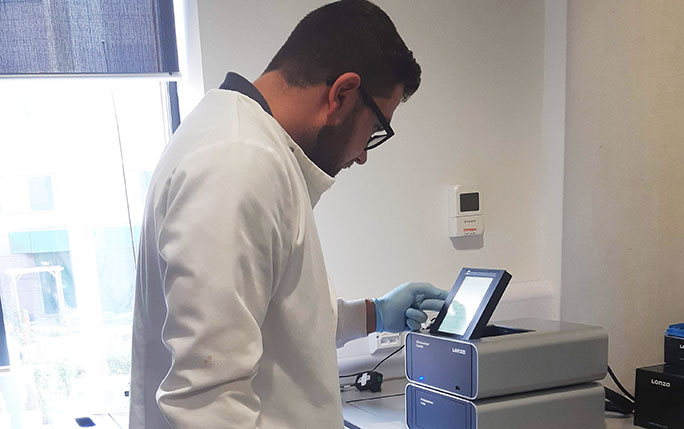University receives donation to support research into childhood arthritis

The University’s Experimental Arthritis Treatment Centre for Children (EATC4Children), based at the Institute in the Park at Alder Hey, has received a £13,700 donation from the Parry Family Trust to fund new lab equipment.
The work of the EATC4Children focuses on children and young people with juvenile idiopathic arthritis (JIA), JIA-associated uveitis, juvenile-onset systemic lupus erythematosus, bone and bone health disorders, and other related conditions. It is the first and only one of its kind in the UK for children.
Researchers at the Centre aim to better understand the role of the immune system in the development and progression of these autoimmune and inflammatory diseases and to identify potential new treatment targets and biomarkers. This could lead to more effective treatment with reduced unwanted side-effects as well as early and correct diagnosis, disease onset, individual course and outcome prediction.
Thanks to the donation by the Parry Family Trust, the team at EATC4Children was able to purchase a transfection system called 4D-NucleofectorTM X Unit which will enable highly efficient, study of immune cells, stem cells, neurons, and cell lines.
Transfection, a procedure that introduces foreign DNA into cells, allows researchers to enhance or inhibit specific gene expression, helping them to fully understand the role certain genes play in the development and progression of autoimmune diseases in children.
Dr Franz Kapplusch, postdoctoral scientist within the Wolfson Labs in the Institute in the Park, said: “Our projects involve working with a Jurkat cell line, which is known to be hard to transfect by conventional transfection techniques. This system will allow us to reach high transfection efficiencies in this cell line and facilitate amongst others dual luciferase promoter assays, overexpression studies and gene silencing studies therefore allowing us to investigate scientific questions that would have otherwise remained unanswered.
“Thank you to the trustees of the Parry Family Trust for making this research possible.”
Find out more about the work of EATC4Children on their website here: www.liverpool.ac.uk/eatc-for-children or, to support their research by making a donation to the EATC4Children fund.